 Petzlover
Petzlover Bohemian Shepherd is originated from Czech Republic but Koolie is originated from Australia. Both Bohemian Shepherd and Koolie are having almost same height. Both Bohemian Shepherd and Koolie are having almost same weight. Bohemian Shepherd may live 5 years less than Koolie. Both Bohemian Shepherd and Koolie has same litter size. Bohemian Shepherd requires Moderate Maintenance. But Koolie requires Low Maintenance
Bohemian Shepherd is originated from Czech Republic but Koolie is originated from Australia. Both Bohemian Shepherd and Koolie are having almost same height. Both Bohemian Shepherd and Koolie are having almost same weight. Bohemian Shepherd may live 5 years less than Koolie. Both Bohemian Shepherd and Koolie has same litter size. Bohemian Shepherd requires Moderate Maintenance. But Koolie requires Low Maintenance
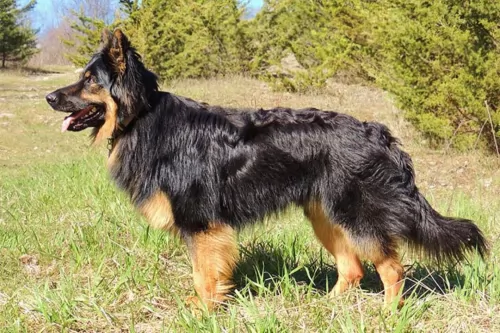 Known as the Chodský pes or the Chodenhund, the Bohemian Shepherd is native to the Czech Republic and is a herding breed. Like many other old dog breeds, nothing is 100% certain about is history. This is thought to be because the breed was developed centuries before the keeping of records. It is certain however, that the breed developed in the south-western portion of the Kingdom of Bohemia, which is now part of the Czech Republic.
Known as the Chodský pes or the Chodenhund, the Bohemian Shepherd is native to the Czech Republic and is a herding breed. Like many other old dog breeds, nothing is 100% certain about is history. This is thought to be because the breed was developed centuries before the keeping of records. It is certain however, that the breed developed in the south-western portion of the Kingdom of Bohemia, which is now part of the Czech Republic.
It is believed the Bohemian Shepherd came from herding dogs such as the Pinscher/Schnauzer, Spitzen or even a dog/wolf hybrid. It was in November 1991, that the Bohemian Shepherd Lover’s Club was founded. Many Bohemian Shepherd breeders have been registered and today the breed has earned the reputation for being a superb family dog. The dog has also been granted recognition with the Czech National Kennel Club.
 The Koolie's ancestors were both the smooth coated blue merle Collie as well as the Black and Tan Collie. The dog hails from Australia.
The Koolie's ancestors were both the smooth coated blue merle Collie as well as the Black and Tan Collie. The dog hails from Australia.
Looking much like the Heeler dog, the Koolie is thought to have got its name from German immigrants to Australia who couldn’t pronounce the name ‘collie’ properly, so the name came out as Koolie. The Koolie of today is a product of a cross between the German Koolie and the Australian Dingo.
The dog has been around for a long time and in 2000, the Koolie Club of Australia was formed. It was in 2004 that the Koolie was recognized by the Australian Sporting Registrar. In May 2006, the Stockdog Committee of the Australian Shepherd Club of America accepted the Koolie as a recognized and accepted herding breed.
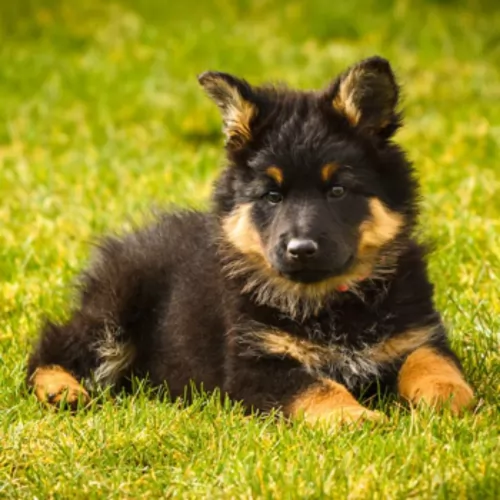 The medium sized Bohemian Shepherd looks much like a combination between the Collie and German Shepherd. He is 48-55 cm in height and weighs about 15-25 kg. The Bohemian Shepherd has a thick, long coat which is black and tan in color and with an undercoat, allowing him to cope in icy weather conditions. His well proportioned body is muscular and compact with a long bushy tail and erect ears.
The medium sized Bohemian Shepherd looks much like a combination between the Collie and German Shepherd. He is 48-55 cm in height and weighs about 15-25 kg. The Bohemian Shepherd has a thick, long coat which is black and tan in color and with an undercoat, allowing him to cope in icy weather conditions. His well proportioned body is muscular and compact with a long bushy tail and erect ears.
The Bohemian Shepherd makes a wonderful family pet, becoming very attached to his human family. He has a good reputation with children too and will get on well with other pets in the home. He is so amicable that he makes a good pet choice for those looking to own a dog for the first time.
He is intelligent and alert and also protective of his family, making him an excellent guard dog. He is easily trainable, and just like with any other dogs, will require training and socialization.
 Known also as the German Koolie or German Collie, the Koolie is a working- or herding dog standing at between 40 – 60cm in height and weighing up to 24kg.
Known also as the German Koolie or German Collie, the Koolie is a working- or herding dog standing at between 40 – 60cm in height and weighing up to 24kg.
The Koolie's coat is a merle coat pattern in red or black and possibly with some tan and is mostly short and smooth, though it can be medium length too. Depending on the coat color – red or black – the nose and eyes can be either brown or black, although eye color can also be blue or yellowish.
The Koolie is such a wonderful pet who has some excellent characteristics to his name. He is active, energetic, fun, clever, friendly and playful, but if you have him trained and socialized he becomes even more of a great family pet. He is intelligent too and will require an owner who is steady, firm, fair and consistent. You wouldn't call him an aggressive dog
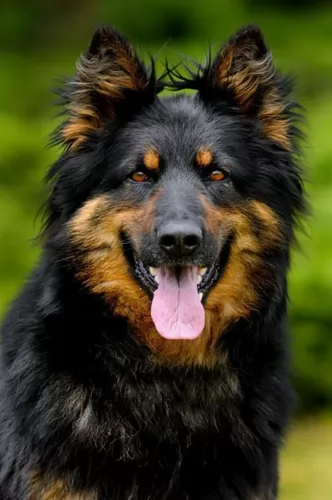 Playful by nature, friendly, gentle and co-operative, your Bohemian Shepherd will make a wonderful pet and he is a real social character, loving to spend lots of time with his human family. With minimal health conditions and without requiring much maintenance, he is an adaptable dog and will easily settle into city- or country living, so long as he is given regular exercise and attention.
Playful by nature, friendly, gentle and co-operative, your Bohemian Shepherd will make a wonderful pet and he is a real social character, loving to spend lots of time with his human family. With minimal health conditions and without requiring much maintenance, he is an adaptable dog and will easily settle into city- or country living, so long as he is given regular exercise and attention.
He is courageous and intelligent and also makes an excellent guard-dog. With so much going for this beautiful dog, he simply makes a loyal, loving and devoted family pet.
 Many people today like the idea of a ‘wild’ animal as a pet, and the Koolie, with his Dingo ancestry, can be a challenging dog breed to keep. People eventually blame these animals for having a poor temperament – meantime all they are essentially, are high-energy animals.
Many people today like the idea of a ‘wild’ animal as a pet, and the Koolie, with his Dingo ancestry, can be a challenging dog breed to keep. People eventually blame these animals for having a poor temperament – meantime all they are essentially, are high-energy animals.
If you keep a Koolie, it will be better if you were a firm, kind, patient, consistent dog owner who understands the special needs of these kinds of dogs. They’re an energetic, care-free animals who will do better on a large property or farm as he is lively and will need a good deal of exercise.
He is quite capable of being a splendid pet with training and socialization and will settle down well to family life when he is loved and cared for.
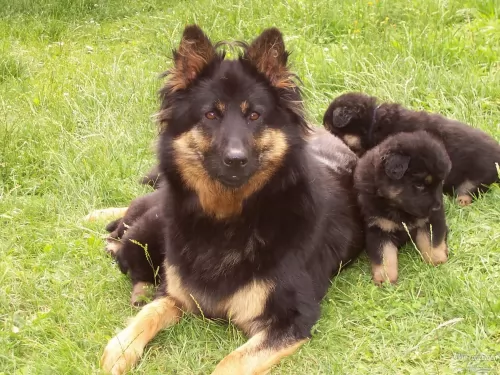 Breeding organizations are continually trying to minimize the diseases within limited-gene-pool dog breeds. While the Bohemian Shepherd is a generally health breed, there are diseases that are more common with the Bohemian Shepherd and which you need to be aware of -
Breeding organizations are continually trying to minimize the diseases within limited-gene-pool dog breeds. While the Bohemian Shepherd is a generally health breed, there are diseases that are more common with the Bohemian Shepherd and which you need to be aware of -
This is a painful disease – a problem with the formation of the hips – where the dog can develop arthritis and even become lame.
This is a condition where gas gets trapped in the stomach of your pet, so that he swells up, sometimes causing the stomach to twist. This is an emergency for your pet and it is extremely painful. Nobody really knows the cause, but when the gas is trapped inside the stomach, the bloated stomach of your pet requires you getting to the vet as quickly as you can.
Look out for Progressive Retinal Atrophy known as PRA . This is a group of degenerative diseases that affect the photoreceptor cells where the cells deteriorate and can result in blindness with your pet. Fortunately it isn’t a painful condition.
 The Koolie is a long-lived dog and there are records of it being able to reach 18 years of age. Because they have a diverse gene pool, you won’t find many genetic problems with this dog.
The Koolie is a long-lived dog and there are records of it being able to reach 18 years of age. Because they have a diverse gene pool, you won’t find many genetic problems with this dog.
It is always wise when you’re the owner of a dog, to look out for his health and wellbeing -
This is to prevent your Koolie picking up fatal diseases such as distemper and parvo-virus. Dogs can be vaccinated from 6 weeks of age for protection.
Working dogs like the Koolie are susceptible to parasites such as tapeworm. Worming of your dog can be included in your vet visit. Dogs with worms may show tell-tale signs such as being pot bellied, very pale gums, anemia and a dull, thinned coat.
A look at his droppings may reveal white segments or worms. Fleas are another kind of parasite and they breed quickly in warm months. Mange is a skin disease caused by small parasitic mites which can actually live inside the hair follicles of dogs. Veterinary treatment will be required.
This is when your pet’s temperature rises out of control. Dogs pant to reduce their body temperature so a dog puffing heavily is putting in extra work to reduce his body temperature.
Never leave you pet in a boiling hot car as the body becomes weak and he has difficulty with breathing. Without immediate treatment, the dog will collapse and die.
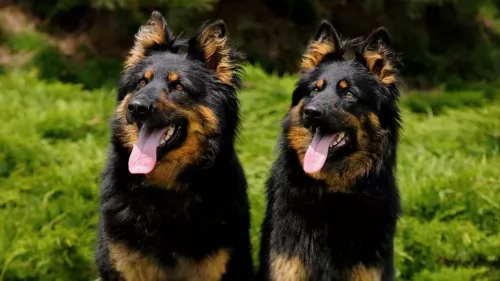 The Bohemian Shepherd is an energetic breed and will need to be exercised regularly. He’ll love to run alongside your bike on your cycling trips or you can take him on a long walk. Having said that, he is an easy going dog and can adapt to city- and country life, but if it’s city life, you can’t leave him cooped up in a small yard and think that will suffice. He has a personality that longs to be part of the family.
The Bohemian Shepherd is an energetic breed and will need to be exercised regularly. He’ll love to run alongside your bike on your cycling trips or you can take him on a long walk. Having said that, he is an easy going dog and can adapt to city- and country life, but if it’s city life, you can’t leave him cooped up in a small yard and think that will suffice. He has a personality that longs to be part of the family.
Your Bohemian Shepherd is a moderate shedder in spite of his thick beautiful coat. The coat will certainly need a good brushing at least twice a week to get rid of that loose hair. Not only that, your social Bohemian Shepherd will love the closeness to you that the brushing brings.
Keep his nails short and his teeth brushed at least 2 or 3 times a week to ensure there is no plaque build up. There are special toothbrushes and toothpastes made for dogs. Don’t use human toothpaste as the ingredients will be harmful to your pet.
Your Bohemian Shepherd, after one year of age, will eat one or two bowls of food a day. You’ll be able to tell what suits your dog, because the amount will eat about 2 to 4 cups of a good quality dry dog food a day, split into at least two meals. The amount can vary depending on its health, build, age, activity level and metabolism. Make sure it has access to water at all times and that it is changed as often as possible.
 The Koolie is an intelligent dog that will benefit from training and socialization to make him obedient and able to cope in diverse situations.
The Koolie is an intelligent dog that will benefit from training and socialization to make him obedient and able to cope in diverse situations.
These dogs show an untiring enthusiasm for exercise and work and wherever you live, you will need to ensure that he gets regular exercise.
Only the very best - both home-made and commercially manufactured food - will be good enough for this energetic dog. Good quality food ensures health and longevity. Always see that there is a constant supply of fresh, cool water.
Make sure that your dog has a warm, dry place to sleep inside and that when outside, he has a cool, sheltered spot from the sun.